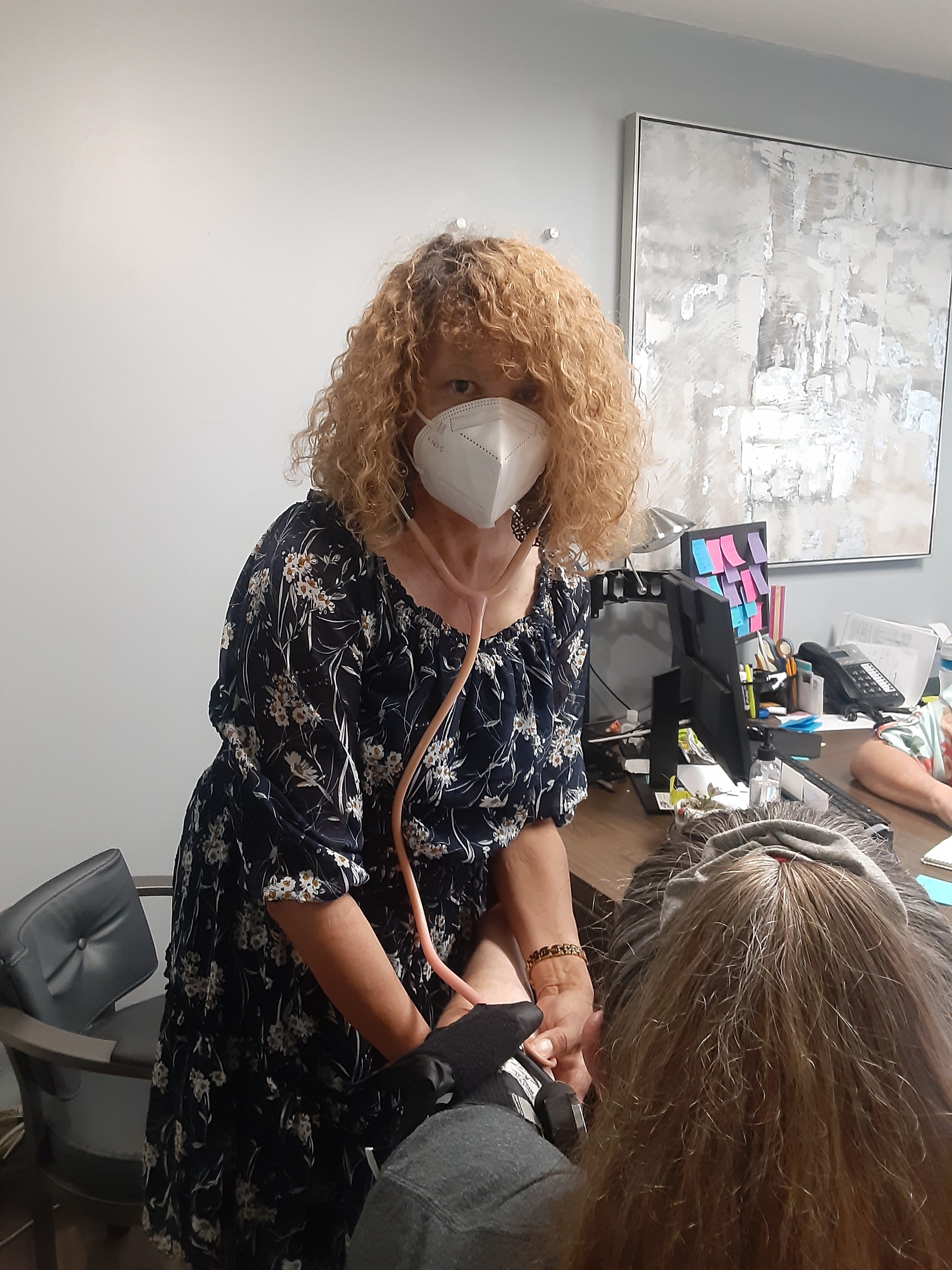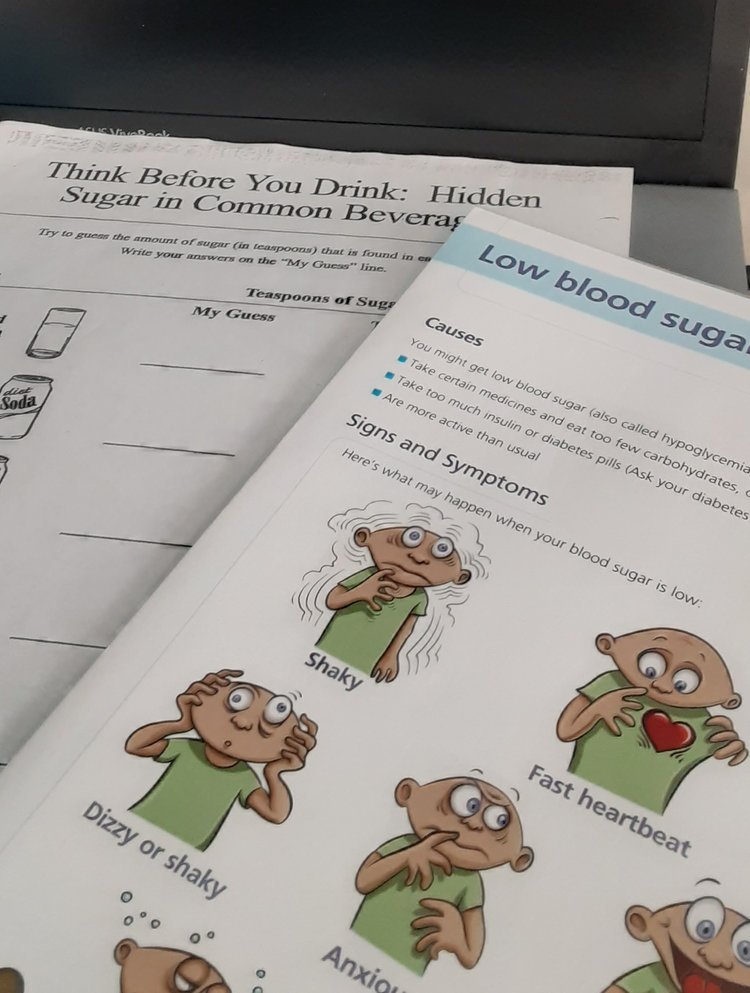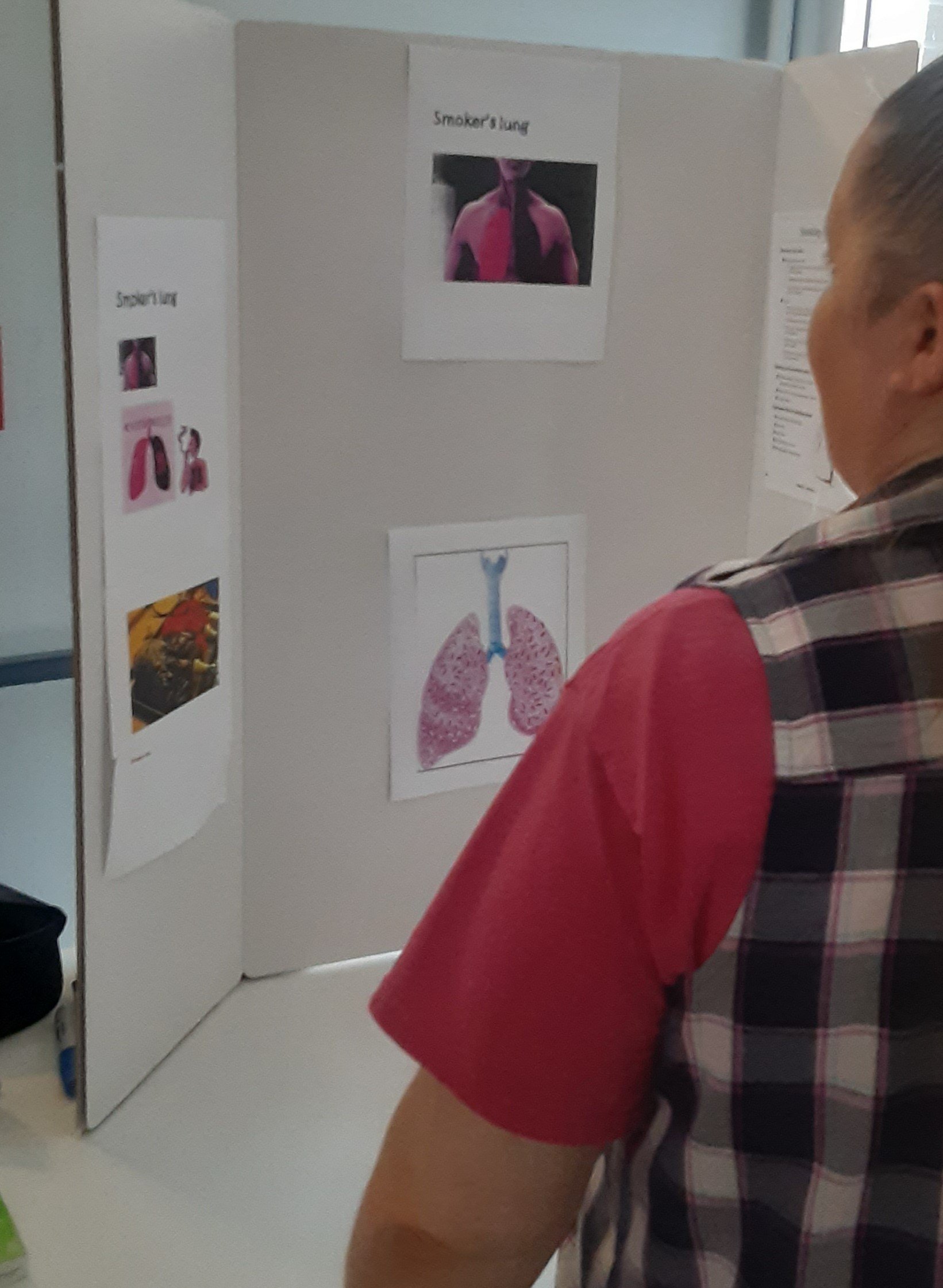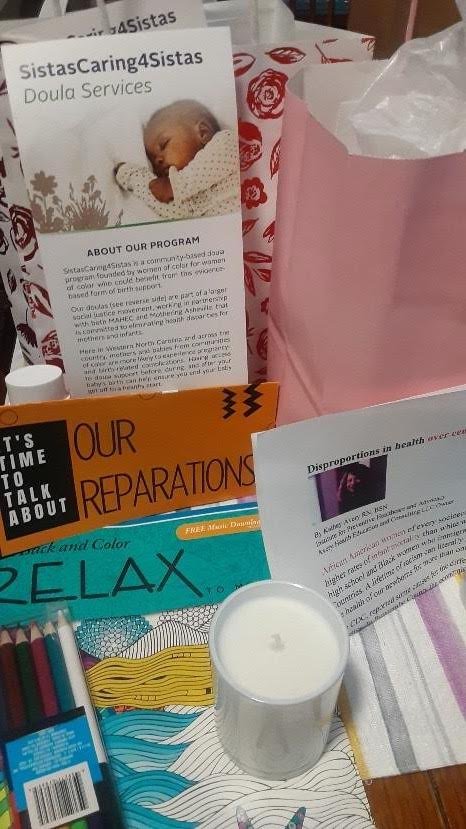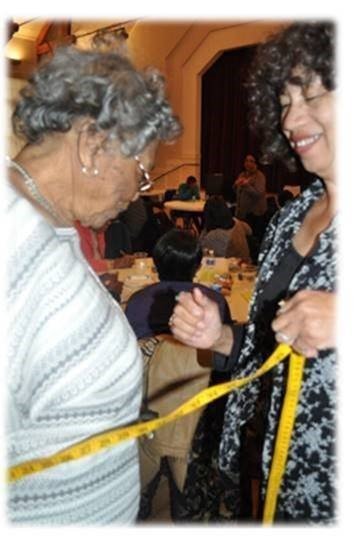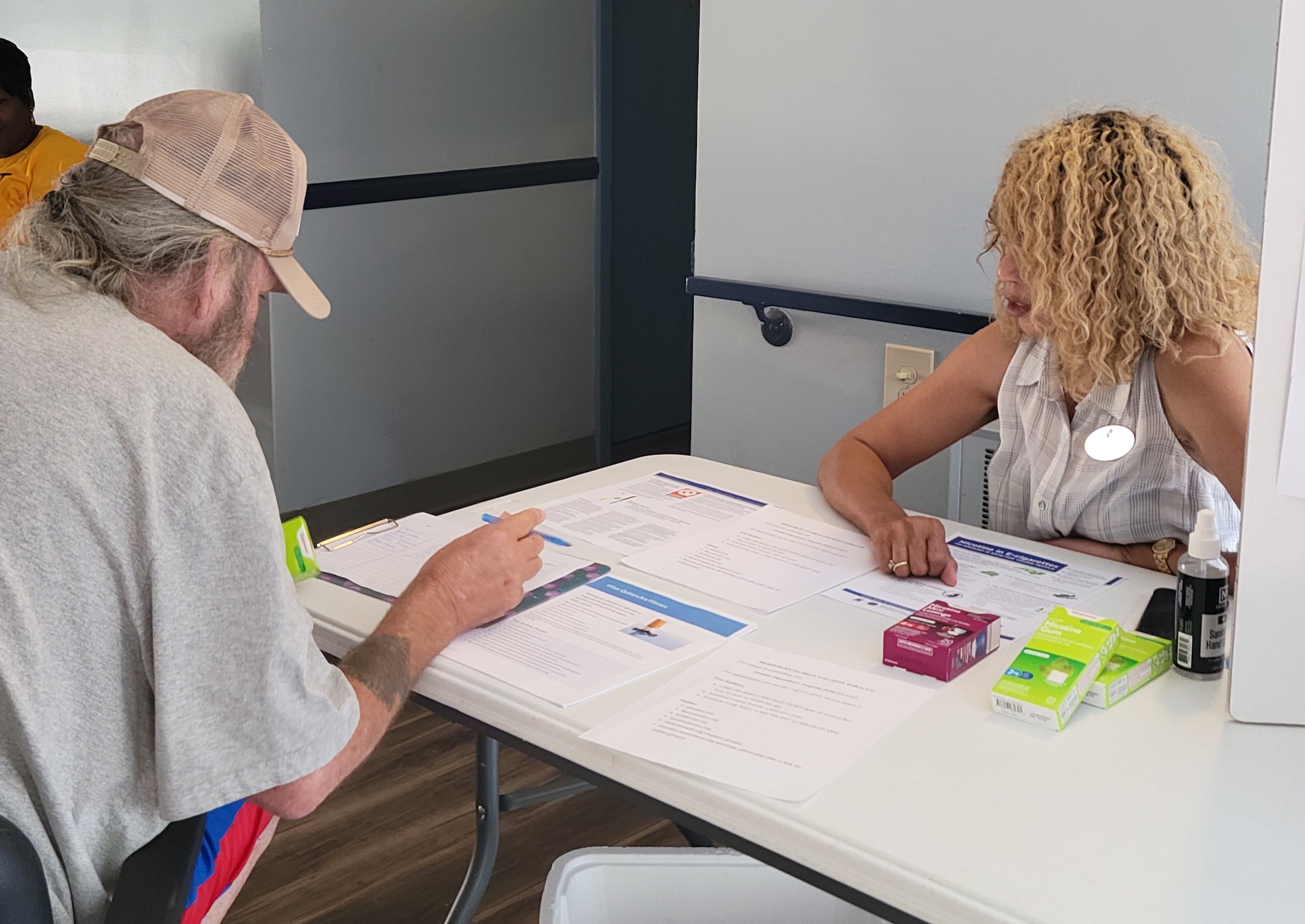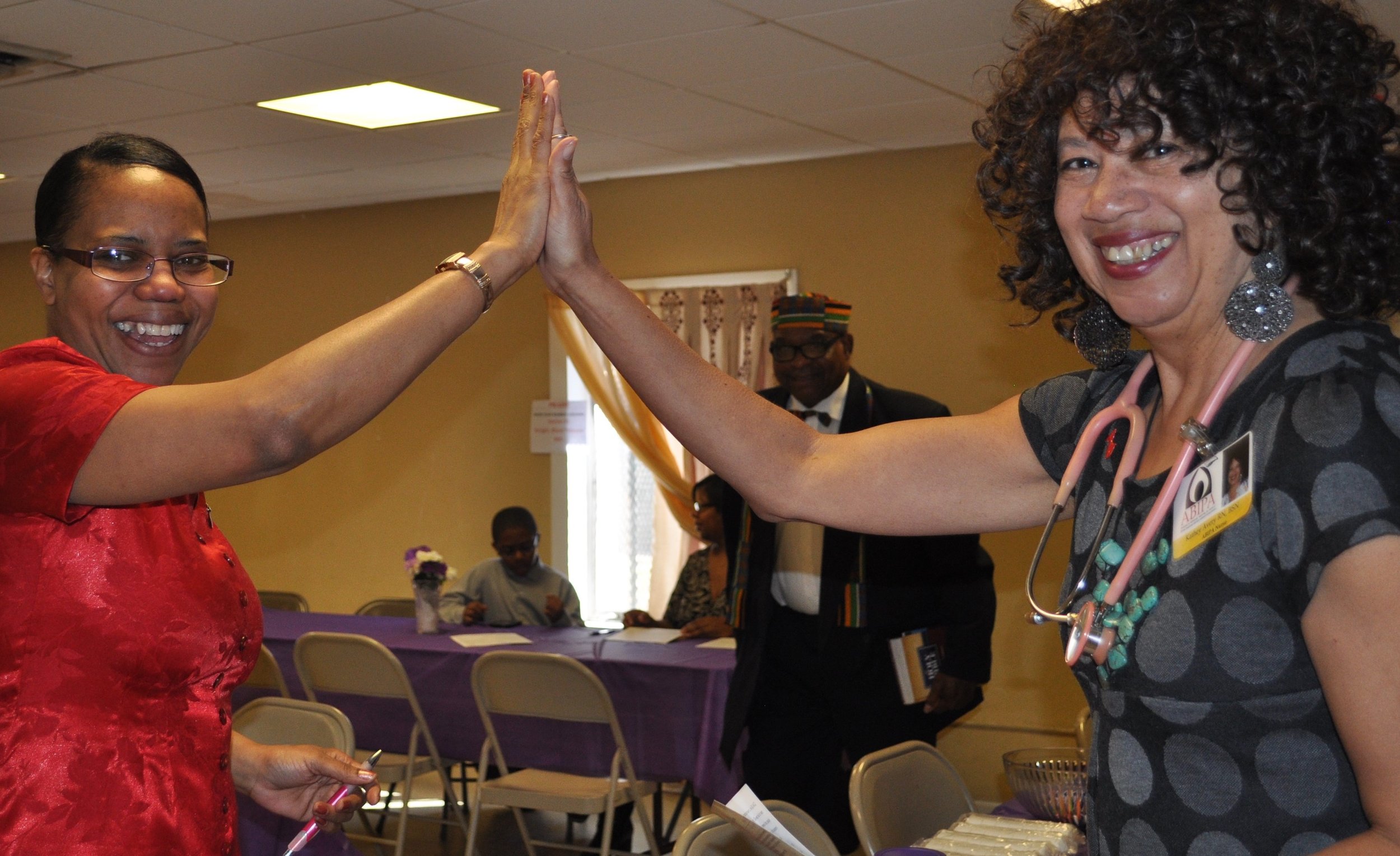Talks & Workshops
Avery Health — Education and Consulting founder Kathey Avery, a longtime oncology nurse, offers educational talks and workshops on health topics for employers, churches, civic organizations, resident associations, sororities, and community groups of all kinds. She tailors presentations to setting and audience size and makeup, and she utilizes a variety of engaging instruction materials and techniques.
Avery is also a Certified Tobacco Treatment Specialist and a member of the Addiction Professionals of North Carolina. She and associate Kevin Rumley are also members of the National Association for Alcoholism and Drug Abuse Counselors.
In 2016, for instance, Avery’s health improvement education services reached nearly 2,500 individuals through 133 education sessions at churches and various housing communities. She can customize or create talks and workshops to fit your group's needs.
Among her Topics:
-
Get help in designing a plan that fits your needs and current situation, that is health focused, and specific to your chronic illness. With follow-up support and mentoring to help you achieve your goals for improved health.
-
Simple ways to achieve heart health by changing your eating habits and lifestyle, one change at a time. Understand how your heart and circulatory system work. Learn to count your own pulse and take your own blood pressure. Plus, what do those numbers mean and how they impact a longer, healthier life.
-
Don’t poo-poo this one. The “Know Your Stuff” class approaches a difficult subject in a fun way! Educational while also fun to teach and enjoyable for participants as we learn signs to watch for and other ways to prevent colon cancer.
-
How to do a breast self-exam, what you need to know about dense breast before you have your next mammogram, and more.
-
First things first, Men. Where is your prostate? What’s its function? Also, includes answers to when do you need to start having a prostate exam? Who is at most risk for prostate cancer, and what are some preventive measures you can take?
-
Learn about diabetes, prediabetes, and ways to prevent or manage the illness. Support and mentoring as you work on lowering your A1C/blood sugars. If you said, “My what?”, this one’s for you.
-
Many North Carolinians struggle every day with food insecurity, housing instability, lack of transportation access, or other social needs. Complete a needs assessment and find ways of utilizing NCCARE360, the first statewide coordinated care network that better connects individuals to local services and resources through one shared technology system.
-
Women, the first protection is prevention. Learn about your own bodies, risk factors, and ways to prevent cancers with good health practices. Learn the risk and signs of cancer. Diagnosing cancer at its earliest stages often provides the best chance for a cure.
-
Buncombe County has the highest rate in North Carolina for incidence of infant mortality for African American women. Find out more about that as well as the roles stress, epigenetics, and chronic inflammation play. Learn ways to lower your stress to benefit you and our next generation.
-
Who’s not in the room? Who’s not at the table? Whose voices aren’t heard? Let a long-time community advocate discuss with your organization the reasons why, how to bring people together, and getting wider participation in solutions—even in setting the agenda on what the true problems are and how your organization can truly “bring your employees together” with diversity, equity, and inclusion.
-
Ready to quit? Our community nurse who is a Certified Tobacco Treatment Specialist will educate, mentor, and support you as you learn about the risks from smoking and work to cut-back or stop to improve your long-term health outcomes.
-
-
Aging comes with some declines and, the reality is, our parents may need us in ways that are very new to us. These changes bring some challenges and dilemmas.
A person stays stronger if we allow him to do as much as he can for himself. When he can’t do it – we can step in or we can ask or pay others to help. With some perspective, we can adapt our role with our parents without getting into an unhealthy, "parental" relationship as they age.
Class Testimonials




